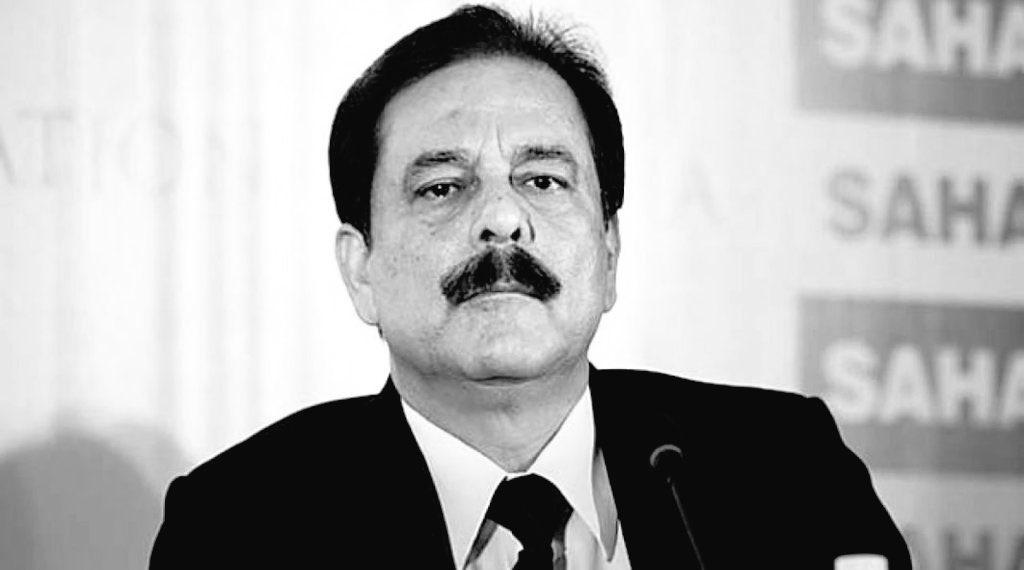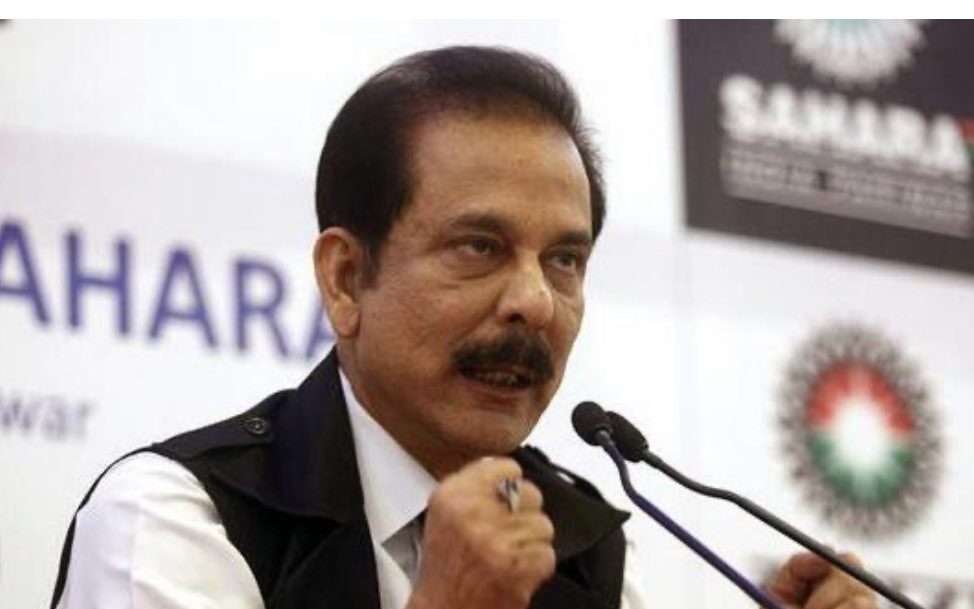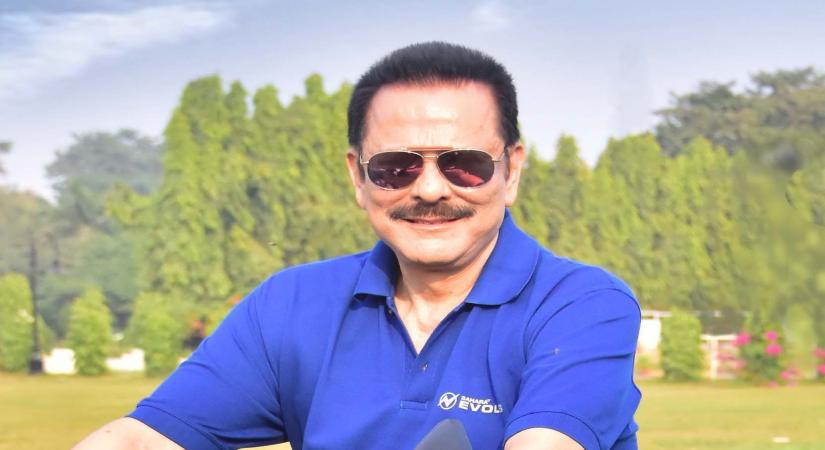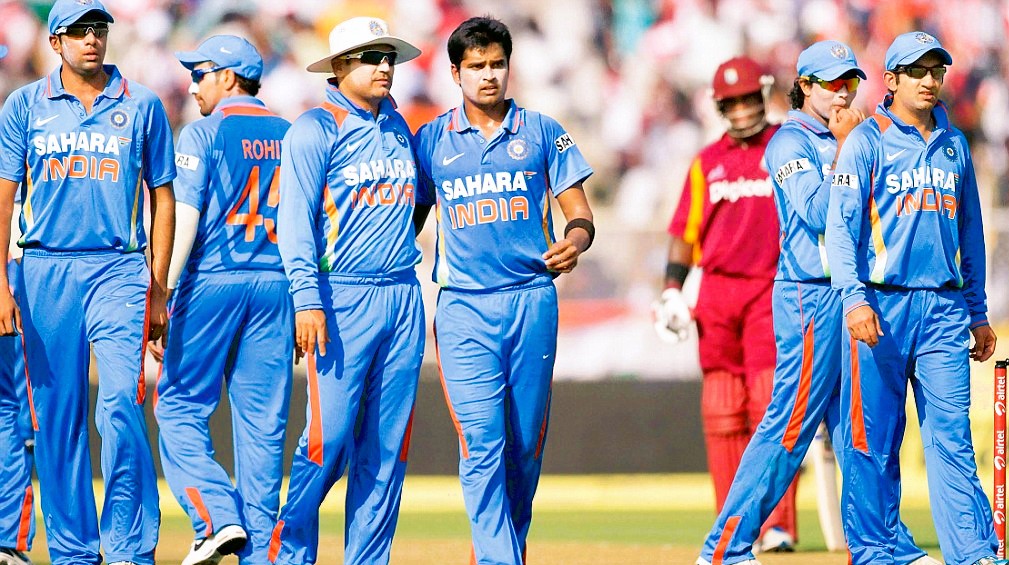Mumbai: Sahara Group chief Subrata Roy died due to a cardiorespiratory arrest at a private hospital in Mumbai on Tuesday after a prolonged illness, according to a company statement. He was 75.
Having created a huge business empire across retail, real estate and financial services sectors, Roy was at the centre of a huge controversy and faced multiple regulatory and legal battles in connection with his group firms that were accused of circumventing regulations with Ponzi schemes, allegations his group always denied.

According to the company statement, he was admitted to the Kokilaben Dhirubhai Ambani Hospital & Medical Research Institute in Mumbai on Sunday after his health deteriorated.
He passed away at the hospital at 10.30 pm on Tuesday due to a cardiorespiratory arrest following an extended battle with complications arising from metastatic malignancy, hypertension and diabetes, it added.
“It is with profound sadness that Sahara India Pariwar informs the demise of our Hon’ble ‘Saharasri’ Subrata Roy Sahara, Managing Worker and Chairman, Sahara India Pariwar,” the group said in the statement.

Calling him an “inspirational leader and visionary”, the statement said, “His loss will be deeply felt by the entire Sahara India Pariwar. Saharasri ji was a guiding force, a mentor, and a source of inspiration for all who had the privilege to work alongside him.”
Sahara India Pariwar is committed to upholding Roy’s legacy and will continue to honour his vision in driving the organisation, it added.
In his prime, Roy had made the Sahara Group a multi-billion dollar enterprise that counted itself among the biggest employers of the country.

He was also known to have friends among the famous and powerful across the fields of politics and Bollywood.
Having scripted one of the most famous rags-to-riches stories of the country, Roy went on to expand his business across various sectors ranging from finance, housing, manufacturing, aviation and the media and became a household name.
His enterprise went on to own landmark global properties, including New York’s Plaza Hotel and London’s iconic Grosvenor House.

Under his leadership, Sahara also sponsored the Indian cricket and hockey teams and owned a Formula One racing team.
Weddings of his two sons some two decades ago are still among the biggest parties ever seen in India. He lived in Lucknow.
His troubles began in November 2010 when stock market regulator Sebi asked two entities of Sahara Group not to mobilise funds from equity markets or from issuance of any security to the public while restraining Roy from approaching the public for raising money.

Roy was arrested in 2014 on the orders of the Supreme Court after he failed to appear before it in a contempt case arising out of non-refund of more than Rs 20,000 crore to investors by two of his companies.
He was later granted bail but troubles continued for his various businesses.
Two Sahara Group companies — Sahara India Real Estate Corporation (SIRECA) and Sahara Housing Investment Corporation — raised funds in 2007-08 through a debenture instrument OFCD.

Later in June 2011, the regulator asked the two group entities to refund money collected from investors through Optionally Fully Convertible Debentures (OFCD) along with the return.
After a long process of appeals and cross-appeals, the Supreme Court had ordered in 2012 refund of deposits of its investors along with 15 per cent interest.
Sahara was eventually asked to deposit an estimated Rs 24,000 crore with Sebi for further refund to investors, though the group always maintained it amounted to “double payment” as it had already refunded more than 95 per cent of investors directly.
Once asked for proof of repayment, Roy famously sent across 100 truckloads of documents to Sebi, triggering a unique warehousing crisis for the regulator.

In another incident, a man from Gwalior threw ink on Roy’s face and called him a thief when he was brought to the Supreme Court in his trademark waistcoat and tie amid chaotic scenes.
The Sahara Group had earlier said it has always built its businesses by productively channelizing human capital spread across India and giving employment and work at people’s doorstep.
“In this way, Sahara is providing bread and butter to more than 14 lakh people in their own villages and towns. It is the country’s second-largest human capital after Indian Railways. This amount could have been used by the organisation to generate more employment and work and helped the country and therefore its economy,” it had said in an earlier statement.
PTI
